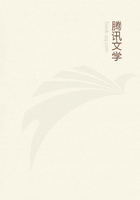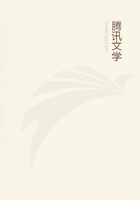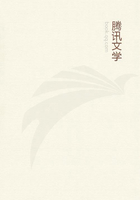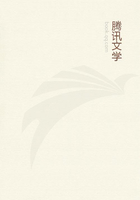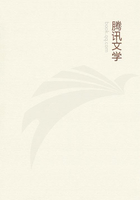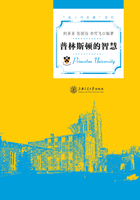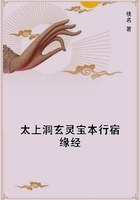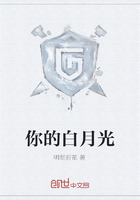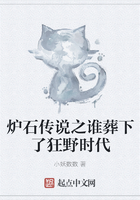The conclusion of the whole matter seems to be that, if Ormuzd has not had his way in this world, neither has Ahriman. Pessimism is as little consonant with the facts of sentient existence as optimism. If we desire to represent the course of nature in terms of human thought, and assume that it was intended to be that which it is, we must say that its governing principle is intellectual and not moral; that it is a materialized logical process, accompanied by pleasures and pains, the incidence of which, in the majority of cases, has not the slightest reference to moral desert. That the rain falls alike upon the just and the unjust, and that those upon whom the Tower of Siloam fell were no worse than their neighbours, seem to be Oriental modes of expressing the same conclusion.
In the strict sense of the word "nature," it denotes the sum of the phenomenal world, of that which has been, and is, and will be; and society, like art, is therefore a part of nature. But it is convenient to distinguish those parts of nature in which man plays the part of immediate cause, as some thing apart; and, therefore, society, like art, is usefully to be considered as distinct from nature.
It is the more desirable, and even necessary, to make this distinction, since society differs from nature in having a definite moral object; whence it comes about that the course shaped by the ethical man--the member of society or citizen--necessarily runs counter to that which the non-ethical man--the primitive savage, or man as a mere member of the animal kingdom--tends to adopt. The latter fights out the struggle for existence to the bitter end, like any other animal; the former devotes his best energies to the object of setting limits to the struggle.
In the cycle of phenomena presented by the life of man, the animal, no more moral end is discernible than in that presented by the lives of the wolf and of the deer. However imperfect the relics of prehistoric men may be, the evidence which they afford clearly tends to the conclusion that, for thousands and thousands of years, before the origin of the oldest known civilizations, men were savages of a very low type. They strove with their enemies and their competitors; they preyed upon things weaker or less cunning than themselves; they were born, multiplied without stint, and died, for thousands of generations alongside the mammoth, the urus, the lion, and the hyaena, whose lives were spent in the same way; and they were no more to be praised or blamed on moral grounds, than their less erect and more hairy compatriots.
[The reader will observe that this is the argument of the Romanes Lecture, in brief.--1894.]
As among these, so among primitive men, the weakest and stupidest went to the wall, while the toughest and shrewdest, those who were best fitted to cope with their circumstances, but not the best in any other sense, survived. Life was a continual free fight, and beyond the limited and temporary relations of the family, the Hobbesian war of each against all was the normal state of existence. The human species, like others, plashed and floundered amid the general stream of evolution, keeping its head above water as it best might, and thinking neither of whence nor whither.
The history of civilization--that is, of society--on the other hand, is the record of the attempts which the human race has made to escape from this position. The first men who substituted the state of mutual peace for that of mutual war, whatever the motive which impelled them to take that step, created society. But, in establishing peace, they obviously put a limit upon the struggle for existence. Between the members of that society, at any rate, it was not to be pursued a outrance. And of all the successive shapes which society has taken, that most nearly approaches perfection in which the war of individual against individual is most strictly limited.
The primitive savage, tutored by Istar, appropriated whatever took his fancy, and killed whomsoever opposed him, if he could. On the contrary, the ideal of the ethical man is to limit his freedom of action to a sphere in which he does not interfere with the freedom of others; he seeks the common weal as much as his own; and, indeed, as an essential part of his own welfare. Peace is both end and means with him; and he founds his life on a more or less complete self-restraint, which is the negation of the unlimited struggle for existence. He tries to escape from his place in the animal kingdom, founded on the free development of the principle of non-moral evolution, and to establish a kingdom of Man, governed upon tile principle of moral evolution. For society not only has a moral end, but in its perfection, social life, is embodied morality.
But the effort of ethical man to work towards a moral end by no means abolished, perhaps has hardly modified, the deep-seated organic impulses which impel the natural man to follow his non-moral course.
One of the most essential conditions, if not the chief cause, of the struggle for existence, is the tendency to multiply without limit, which man shares with all living things. It is notable that "increase and multiply" is a commandment traditionally much older than the ten; and that it is, perhaps, the only one which has been spontaneously and ex animo obeyed by the great majority of the human race. But, in civilized society, the inevitable result of such obedience is the re-establishment, in all its intensity, of that struggle for existence--the war of each against all--the mitigation or abolition of which was the chief end of social organization.

